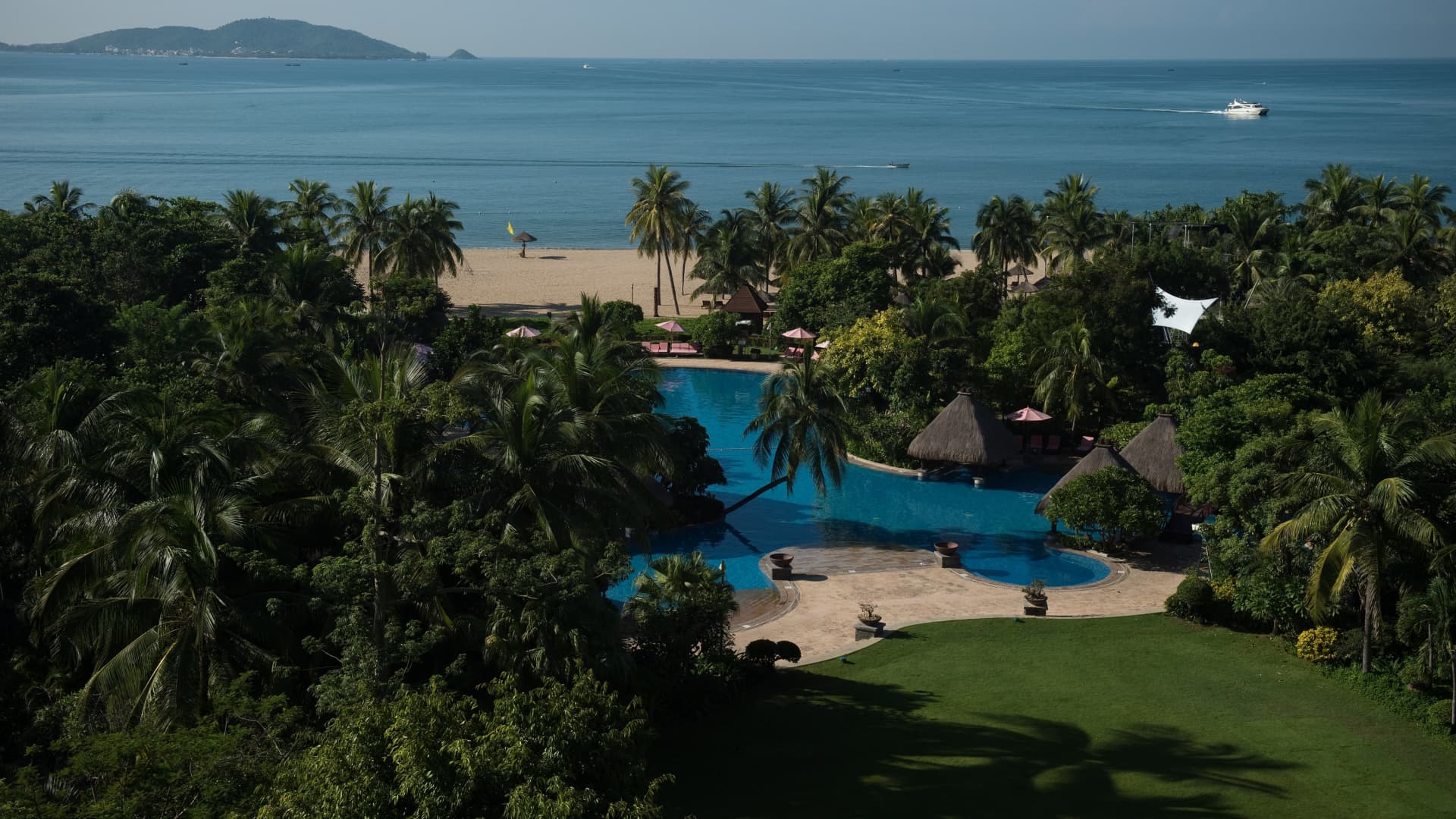Club Med is “very optimistic” about China’s reopening, an executive from Fosun Tourism Group told CNBC Monday, adding that the luxury resort chain is “definitely not for sale.”
Xu Bingbin, its co-president told “Squawk Box Asia” in an exclusive interview Monday that “Fosun Tourism Group is one of the core businesses of Fosun [International], and Club Med is one of the core businesses of Fosun Tourism Group.” Fosun Tourism Group is the leisure arm of Chinese conglomerate, Fosun International.
Bloomberg reported in November that Fosun International is exploring “strategic options” for Club Med as a means to reduce debt.
“We are actually happy to see if … partners in different parts of the world can give synergy for us, but definitely Club Med is not for sale,” said Xu, who is also the CEO of Club Med China.
While there’s been a “significant demand for outbound travel” since China’s reopening, there’s still some catching up to do, Xu acknowledged.
“So far, the air capacity from our major sourcing market [China] to major destinations is not yet there.”
Xu added he foresees the peak of outbound travel to happen this summer, along with increasing per capita spending of its “target clients.”
Uneven recovery across markets
There was a strong rebound in Club Med’s business from the Americas and EMEA from the second half of 2021, but operating profit in Asia-Pacific is still “far below the pre-Pandemic level,” Fosun Tourism Group said in its 2022 earnings release.
That’s due to remaining travel restrictions in Asia Pacific countries and Covid-19 resurgence in China, the company said.
The tourism group posted its 2022 earnings last Thursday, reporting $2 billion in revenue — a year-on-year growth of 48.8%.
Xu added that it had recovered 99% of its pre-pandemic business volume in 2019.
Hong Kong-listed shares of Fosun Tourism Group rose 0.93% while shares of Fosun International were 3% lower on Monday, marking the lowest levels it’s seen since December.
Club Med said the lifting of pandemic-related restrictions “accelerated its recovery” in the EMEA and Americas regions.
Business volume in the EMEA region increased by 116% year-on-year and grew by 89% in the Americas compared to a year ago, the company said.
While business volume for Club Med in Asia Pacific grew by 110% year-on-year — which indicates “quick recovery” — growth in mainland China recorded only a 2.3% increase, according to the earnings report.
Xu said he remained “optimistic” that domestic business will see stronger rebound, given China’s easing of pandemic restrictions.
“Actually [during] Chinese New Year, we achieved 30% [more] than 2019 for our domestic business … our business is really taking off and we are gaining market share,” he told CNBC.
Fosun Tourism Group also owns travel agency Thomas Cook and other tourism destinations in China, such as Atlantis Sanya on Hainan Island and Lijiang FOLIDAY Town in Yunnan Province.
